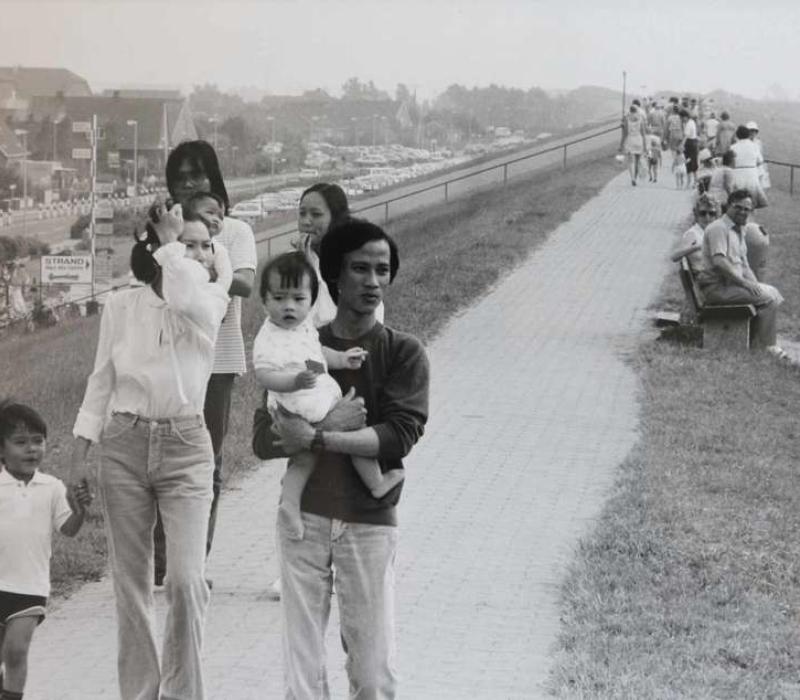Binnendieks: The reception of Boat People from Vietnam in Norden-Norddeich

Binnendieks: The reception of Boat People from Vietnam in Norden-Norddeich
Lecture & discussion with Roman Siewert
45 years ago, refugees from another part of the world reached the Federal Republic of Germany in large numbers for the first time. On 3 December 1978, the first 163 of 1,000 Vietnamese refugees rescued from distress at sea in the South China Sea arrived in Hanover. Initially, this was an act of humanitarian aid by the state of Lower Saxony under Minister President Ernst Albrecht, but the admission of the so-called boat people subsequently turned out to be a turning point in German asylum policy. The quota system - which is still in place today - was created: In the years that followed, up to 40,000 more Vietnamese came to Germany in this way.
Norden-Norddeich became a central arrival point in Lower Saxony. The boat people reached the Nazareth social welfare centre, a clearing centre and initial reception facility, via the Friedland border transit camp. Roman Siewert was the director of Sozialwerk Nazareth from 1977 to 2017. He oversaw the reception of a total of 3,155 boat people. In his lecture, he recalls the political circumstances of the reception - it was literally uncharted territory for the authorities -, the arrival of the people from South-East Asia on the North Sea coast and their human and individual needs. In doing so, he provides insights into different life paths and poses the question: Why is the reception of the boat people remembered as a German success story? The event will be livestreamed here.
Binnendieks: Reception of the boat people from Vietnam in Norden-Norddeich | Memories by Roman Siewert - YouTube
The event is part of a joint series of events organised by the Friedland Museum, the Foundation Displacement, Expulsion, Reconciliation (Berlin) and the Gnadenkirche Tidofeld documentation centre on the reception of the boat people. It is funded by the Federal Government Commissioner for Culture and the Media as part of the joint project "What unites us. Experiences of forced migration yesterday and today".